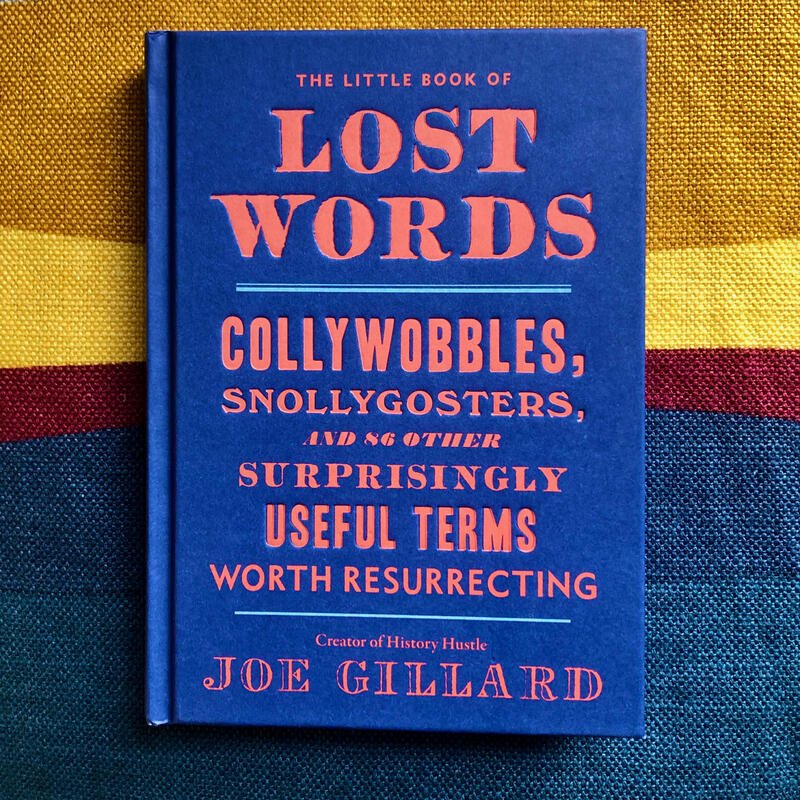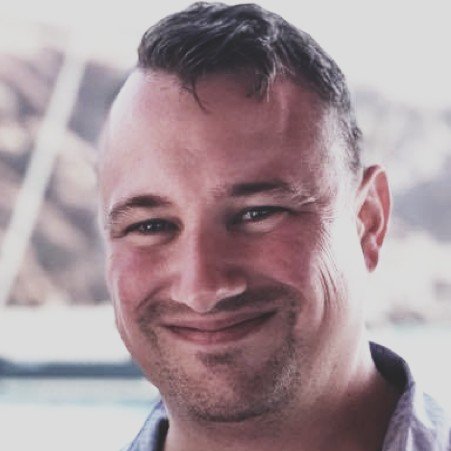Writing Like a Kid on Christmas Morning
Something my wife said has always stuck with me. It’s something I still think about often. As a writing teacher and novelist, my wife has spent much of her time thinking about the creative process and gaining insights into the day-to-day work she and other creative people engage in.
What she said was this:
“Everyone needs to find that thing that they’ll get up early in the morning to do, even if they hate getting up early.”
For my wife, that’s an easy question with an easy answer. It’s writing. The actual act of writing. Not waiting for inspiration, not going for a meditative creative walk. For her, it’s typing out paragraph after paragraph of a fictional story. She wakes up, catches the sunrise, feeds the cats, grabs her coffee, and then attacks the keyboard for the next several hours.
The author of this article, Joe Gillard’s THE LITTLE BOOK OF LOST WORDS (Ten Speed Press).
Many of us might have to think far back to find such things. When we crawled out of bed while it was still dark outside to do something we couldn’t wait to do like a kid on Christmas morning.
It’s typically something new and different. Something you were thinking about before you fell asleep. Maybe it was playing a new video game, working on your new car, checking the stock market, or feeding a new kitten.
Staying up late to do something is similar; many relate to this more. But getting up early for something is choosing discomfort over present comfort, and that's our mind telling us there is something enjoyable and exciting that outweighs the temporary ick of getting out of bed.
A page about storytelling from Joe Gillard’s THE LITTLE BOOK OF LOST WORDS (Ten Speed Press).
Writers love being writers, but not necessarily every part of the work. They might get up at five a.m. to write a thousand words but will put off marketing until the last minute. And many writers know precisely what part of the work excites them daily, but they aren't finding it in their current project, and all they want to do is work on some new idea they've been noodling on.
There have been a lot of things in my life that I thought I was excited to get up early to do. A new job I was enjoying, or a particular writing project I was working on. But it never lasted for more than a few days. And I am not a morning person, so when I think about it, there are only a few things that are so engaging to me, that excite me so much, that I’ll hit “off” instead of “snooze” on the first alarm.
But lately, I’ve been getting up early, skipping all the usual passive habits of social media, news, and other online activities, and going straight to researching for a new writing project I was working on. Scanning old books and Wikipedia articles to find facts, excerpts, and other things to bring old history to life. Usually, this feeling would fizzle out, but weeks later, it hadn’t. I hadn’t felt like that about something in a long time.
It was a signal that I was on to something. It was a thread of curiosity that I needed to follow.
The author of this article, Joe Gillard’s THE LITTLE BOOK OF LOST WORDS (Ten Speed Press).
When you identify that thing, it can be profound. It means you’ve found something that brings you true joy. Something that allows you to enter that state of “flow” that so many self-help books talk about. Something you can’t stop talking about to your friends and family. Something that makes you forget about time and even existential despair.
“Hold on to that feeling and nurture it. …Repeat this day after day, and you're on your way to a satisfying and productive writing life.”
Hold on to that feeling and nurture it. Because if you start your day in a state of pure joy, losing track of time, you'll be amazed at how much you've accomplished by the time you start your "regular" day. And you now have time to do the parts you maybe don't like so much. Repeat this day after day, and you're on your way to a satisfying and productive writing life.
“How we spend our days is, of course, how we spend our lives,” says Annie Dillard in THE WRITING LIFE. We should be writing for ourselves, here and now, this day, not just for some future day.
When you find that feeling in something, and I hope you do if you haven’t already, you can bring new meaning, purpose, and productivity to your work.
And there’s nothing like a good sunrise to bring calm and inspiration.
Joe Gillard is the author of THE LITTLE BOOK OF LOST WORDS: COLLYWOBBLES, SNOLLYGOSTERS, AND 86 OTHER SURPRISINGLY USEFUL TERMS WORTH RESURRECTING (Ten Speed Press), a history buff and founder of History Hustle, a digital publication for history fans. He believes history is really just one big story of humans doing hilarious and interesting things. History Hustle boasts over 320,000 loyal social media followers, 40 million video views, and has been featured on Quartz, The Chive, Bored Panda, Cheezburger, the Culture Trip, and more.





